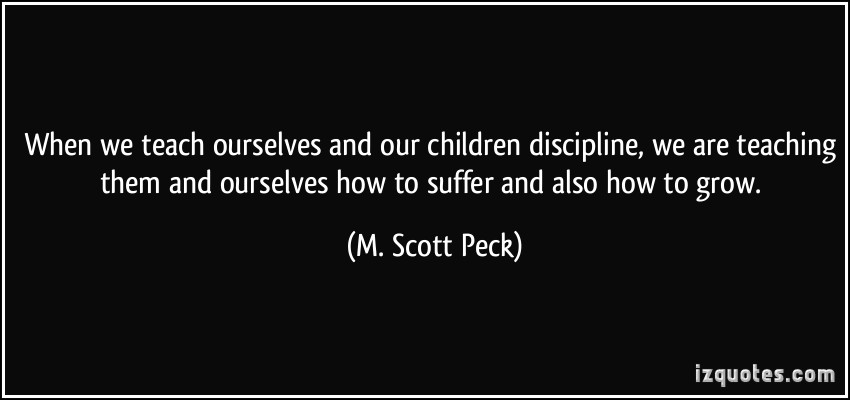“Mom, get me this one. I want this one!”
One too many times have I heard this phrase fall from a child's lips, as they whine relentlessly for some new contraption that has piqued their interest. Their voices are sprinkled with an unsettling cockiness, an overconfidence that their demands will be met. And God forbid they are not. Their faces swell up beet red, disbelief and anger flaring up in their nostrils. They become little bulls, their voices growing to the shrillness of dog whistles. Mistake me not. It is understandable if a child of four or five acts up this way. Public etiquette would still be a very new concept to children of such a tender age. Plus, these toddlers are only just leaving the stage of their lives during which they are always accommodated. During the ages of one through three, one could be fed, played with and lulled to sleep simply by crying. The idea of not being carried everywhere is still considerably foreign to them. Their insolence can be entertained. They are not the ones I’m worried about. They can and will learn.
What frightens me is when I hear that whine, twist my head in its direction and I see an eleven, twelve or thirteen-year-old. I try my best to blink away the surprise but, once I am out of sight, I can feel the question mark forming in my eyes. I am so confused each time I see a sight like this. And, as I said, I have seen it one too many times.
Children can act that way? I would think. If I did that, my mom would slap me.
When my sisters and I were younger, we would misbehave. We weren’t angels. We were little children, needy and curious to see how far something could bend before it broke. Whenever my parents were the targets of those mentalities, they gave us an incentive not to act that way again. A slap or pinch on the shoulder, a smack on the mouth. Never meant to hurt us, they were physical reminders that disrespect would not be tolerated.
I knew nothing was the wrong with the way my parents handled our behavior. So, I was shocked when I laughingly shared my experiences with a friend and heard the words, “That’s abuse.”
Pilipino Mentality vs. Americanized Mentality: the Difference between Discipline and Abuse
“That’s abuse.”
The words lingered on me. Never before have I received that type of reaction, especially from another Pilipina. I knew discipline to be a tradition in Pilipino households. Ask any Pilipino teenager, “What were you hit with as a child?” and you will get a slew of different answers. But you will find that none who answer your questions will do so with resentment. In fact many of them laugh, reminiscing about what stunt they pulled to find themselves on the receiving end of a wooden spoon and how whatever they did they never did it again. The thwack of a tsinelas against your backside or of a palm against your face, all of these become memories Pilipinos jokingly exchange. So to hear the rancor in her voice, I could not understand. I couldn’t, that is, until I inspected more closely this friend who disapproved so intently. We were both Pilipino, but her personality bore no resemblance to the features that defined others like us. Time and again, I expressed my confusion to her. Each time she only answered, “Yea, I’m just really Americanized.” That explained the Santo Nino-less living room but does that really affect our attitudes on the abuse vs. discipline debate? I learned that it does.
The Pilipino culture is one that deeply values respect, especially to one’s parents. When you show disrespect, you invite punishment. A light slap to the face waited for me when I ‘sassed’ my parents. A pinch the shoulder was to be expected when I misbehaved in public. But it was only when I diminished my parents’ authority that I was disciplined. For the Pilipinos, discipline is not something done out of spite, rather it is something done to preserve the ideal of parental appreciation. It is not a way for parents to hurt their children but to teach them how to respect others and, thus, gain respectability in return. This, according to Laws.com, is the main difference between discipline and abuse. While discipline is a controlled reaction to a misdeed, abuse makes no distinction between right or wrong, leaving emotional and physical wounds on its recipients often for no reason.
“Americanized” people, I feel, are unable to perceive that difference. When the only examples of discipline that they are exposed to are televised abuse stories, Americans are given almost no choice but to be biased against physical punishment. They are forced to think in extremes, automatically associating discipline with fear-inducing violence when it is not. They don’t realize that a middle ground does exist, and one of the places you can find it is in a Pilipino house.
I will always remember that conversation with that particular friend. I was in seventh grade and, although I knew that my parents were not abusing me, there was no way to properly explain that. Intuition was not enough ammunition against the black-and-white ideology of children. I was not aware of the shades of gray that vindicated my parents from the label of child-abusers. However, I walked away from that conversation confident that my mom and dad were loving parents. Now older, I can and do defend my parents actions as something they learned from their parents, something that is indicative of the Pilipino culture, and something that allowed me to become a considerate and respectful individual.
Photo Credit: izquotes.com

